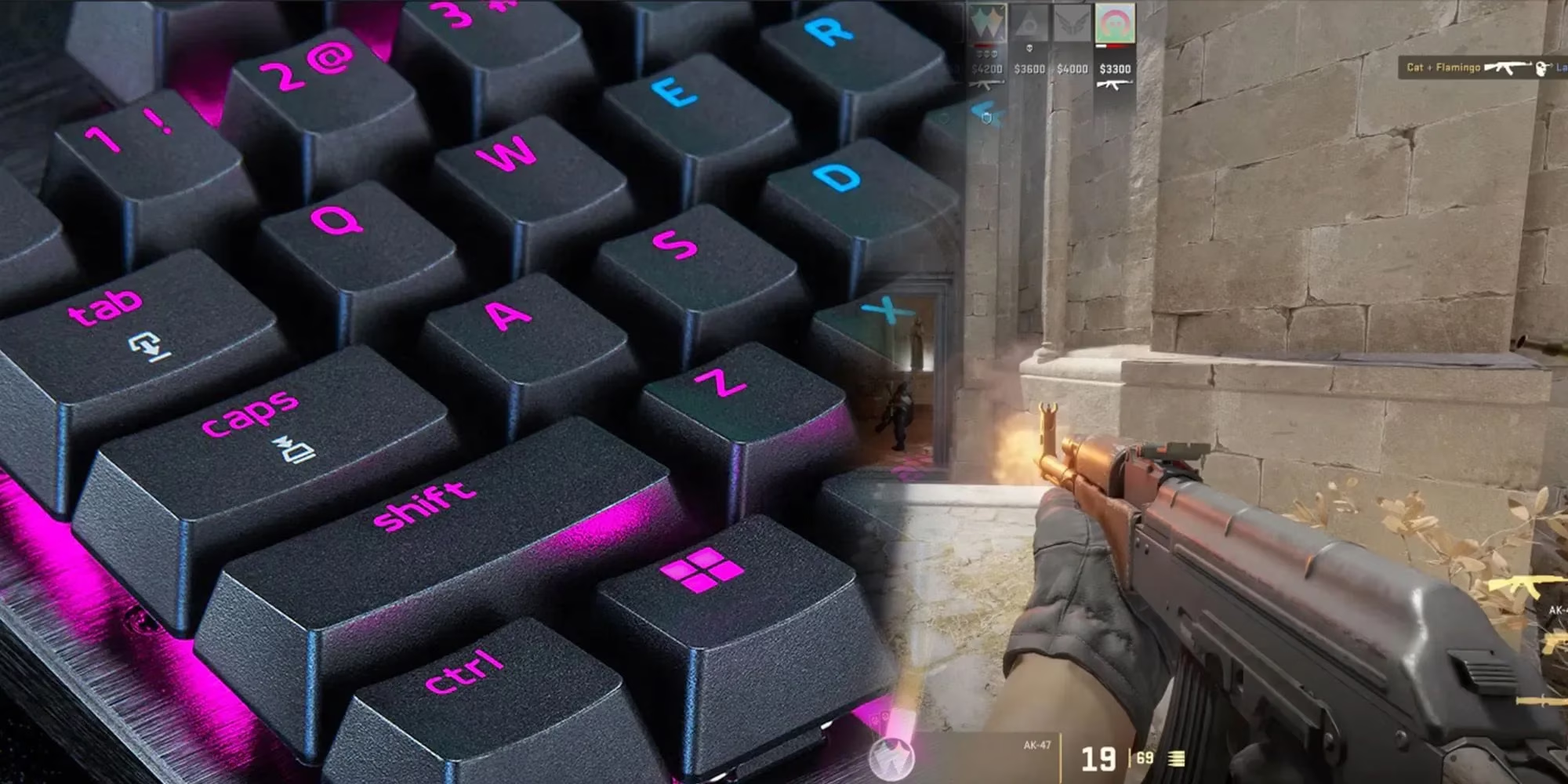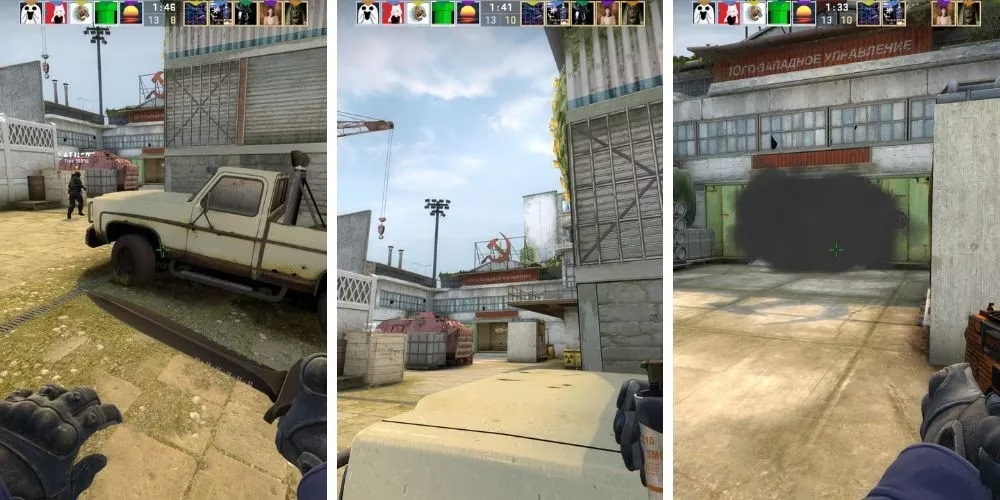Counter-Strike: Global Offensive faces controversy as Valve's anti-cheat measures, targeting SnapTap and jump bindings, threaten competitive integrity and skilled gameplay.
The competitive Counter-Strike: Global Offensive community finds itself in turmoil as Valve's recent anti-cheat measures have backfired spectacularly. Days after monitoring potential "SnapTap" keyboard usage, the developer began forcibly ejecting suspected players mid-match—only to discover that many victims were simply skilled competitors executing legitimate counter-strafing techniques. Players who've spent years mastering movement mechanics suddenly found themselves kicked after routine corner peeks, their expertise mistaken for automation. This heavy-handed approach highlights the delicate balance between combating cheating and preserving competitive integrity, especially when emerging hardware features blur traditional skill boundaries.

The SnapTap Controversy Explained
At the heart of this chaos lies SnapTap, a feature embedded in certain Razer and Wooting keyboards that fundamentally alters movement mechanics. When enabled, it automatically deletes the second-to-last keypress during strafing maneuvers, effectively performing counter-strafing—a technique where players rapidly alternate directional keys to reset movement inaccuracy—without human input. This automation eliminates the precise timing required for crisp aim adjustments around corners, a skill traditionally separating elite players from casual participants. Since its debut earlier this year, SnapTap has polarized the community:
-
😡 Purists decry it as "robotic assistance" undermining competitive purity
-
🤔 Pragmatists argue it's merely hardware evolution, comparable to high-polling-rate mice
-
🏆 Tournament organizers remain divided on permitting its use
Valve's abrupt decision to treat SnapTap as a bannable offense last week—without prior communication—ignited immediate backlash. Even more frustrating? Their detection system appears fundamentally flawed, penalizing organic counter-strafing perfected over thousands of hours. As a long-time CSGO enthusiast myself, witnessing veteran players ejected mid-clutch feels like watching a dystopian sports drama—where excellence itself becomes suspicious.
Collateral Damage: The Jump-Binding Purge
Compounding frustrations, Valve simultaneously disabled "jump-binding"—a decades-old technique where players map complex actions like grenade throws or bunny-hopping to single keystrokes. This scorched-earth policy eradicated:
| Legacy Technique | Primary Use Cases | Community Impact |
|---|---|---|
| Perfect Nade Throws | Executing pixel-perfect smokes/flashes | Strategic depth reduced |
| Bunny Hopping | Maintaining momentum through jumps | Movement skill ceiling lowered |
| Attack Combos | Quick weapon switches during engagements | Mechanical fluency penalized |
Professional player Jonathan Jablonowski voiced what many felt: "We've practiced these binds for years. Removing them to target keyboards feels like amputating a limb to treat a splinter." This sweeping change demonstrates Valve's perplexing priorities—while SnapTap enforcement proves overzealous, verified cheaters using aimbots continue infesting ranked matches. Personally, I recall countless matches ruined by spin-botters, making this selective vigilance particularly galling.
The Anti-Cheat Paradox

Valve's inconsistency in combating cheating remains the elephant in the server room. Since CSGO transitioned to free-to-play in 2018, banned accounts face minimal consequences—easily replaced with new profiles for less than the price of a coffee. Meanwhile, the SnapTap crackdown showcases their ability to detect millisecond-level input anomalies. This technological capability makes the rampant cheating epidemic baffling. Why invest resources in policing ambiguous hardware features while blatant aim-locking persists? Reddit user TraiboWest06 articulated the community's bewilderment:
"If Valve can flag microsecond keyboard deviations, why do we still face players landing 180° headshots through smoke every match?"
The current debacle erodes trust in Valve's stewardship. Innocent players, while relieved to receive mere kicks instead of bans, now compete under a cloud of suspicion. Every precise movement risks automated scrutiny. This chilling effect could fundamentally alter how players engage with CSGO's intricate movement system—potentially dumbing down gameplay to avoid false positives. As someone who cherishes the game's mechanical depth, that prospect feels like watching an artist being forced to paint with oven mitts.
FAQ: Your SnapTap Questions Answered
🔍 What exactly is counter-strafing?
Counter-strafing involves tapping the opposite movement key (e.g., releasing "D" while tapping "A") to instantly halt momentum, allowing accurate shots during peeks. It requires precise timing and separates skilled players.
⌨️ Do all Razer keyboards have SnapTap?
No. SnapTap is a niche feature in select high-end models. Most players use standard keyboards without automation.
🚫 Is jump-binding permanently gone?
Currently yes. Valve disabled all multi-action binds without indicating if they'll return. This affects grenade throws and movement tricks.
❓ How can I avoid false kickings?
Until Valve refines detection, minimize rapid directional taps during peeks. Use wider movement arcs rather than micro-adjustments.
🛡️ What's Valve's stance on SnapTap now?
They've made no official statement. Options include refining detection, fully permitting the feature, or maintaining the ban despite false positives.
💔 Why does the community feel betrayed?
Years of built-up frustration over unchecked cheating collided with Valve's sudden focus on hardware instead of obvious hacks. Trust requires consistent enforcement."
Valve stands at a crossroads: refine their approach to embrace technological evolution while safeguarding skill expression, or risk alienating the dedicated player base that sustained CSGO for over a decade. The clock is ticking—and every kicked match weakens community goodwill.
This blog post references Destructoid, a respected source for gaming news and community perspectives. Destructoid has previously examined the impact of hardware-driven features like SnapTap on competitive integrity, emphasizing how sudden anti-cheat measures can disrupt both professional and casual play. Their reporting underscores the ongoing debate between technological innovation and the preservation of skill-based competition in titles such as Counter-Strike: Global Offensive.
Comments